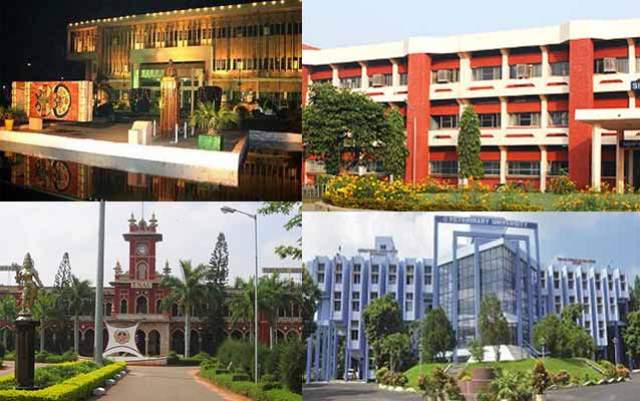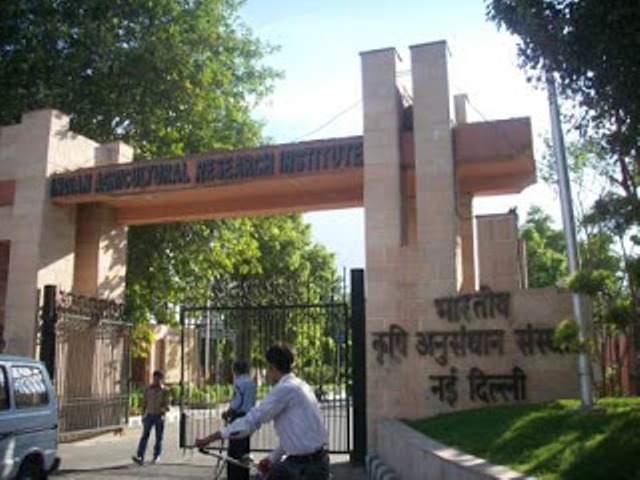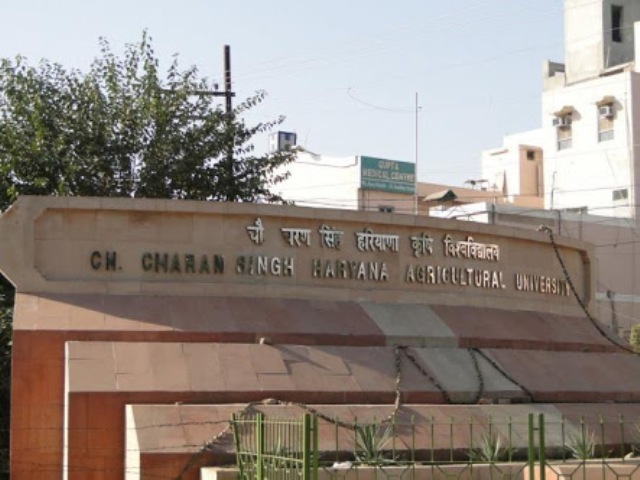Top 10 agricultural colleges in India
Agriculture is an important part of our Indian economy and the demand for skilled professionals in the field is growing day by day. After pursuing a graduation or post graduation degree in agriculture, one can get a high paid job in private as well as government sector. You can work as an Agriculture Officer, Production Manager, Research Scientist, Farm Manager and so on.
For those who are looking for a successful career in the field should take admission in any reputed institute or university to gain maximum benefits in the form of best education, good faculty, well-equipped libraries and placement cell.
Top 10 agricultural colleges in India
12 September, 2018 4:09 PM IST
Agriculture is an important part of our Indian economy and the demand for skilled professionals in the field is growing day by day. After pursuing a graduation or post graduation degree in agriculture, one can get a high paid job in private as well as government sector. You can work as an Agriculture Officer, Production Manager, Research Scientist, Farm Manager and so on.
For those who are looking for a successful career in the field should take admission in any reputed institute or university to gain maximum benefits in the form of best education, good faculty, well-equipped libraries and placement cell.
Here is a list of top 10 agricultural universities in India:
National Dairy Research Institute (NDRI), Karnal
NDRI was established in 1923 in Haryana. As one of the top dairy research institutes, NDRI provides high quality education in the field of dairying. The university offers undergraduate, post graduate, PhD and diploma courses. It also has hostel for students from other state.
Indian Agricultural Research Institute (IARI), Delhi
popularly known as ‘Pusa’ institute was established in 1905 in New Delhi. In 1958, IARI attained the status of a deemed university. At present, the institute constitutes 20 divisions, 3 all-India coordinated research projects, 5 multi-disciplinary centers, 2 off-season nurseries, 8 regional stations and 10 national centers. The university offers courses in Agriculture, Environmental Sciences, Biochemistry, Bioinformatics, Horticulture, Floriculture, Computer Application, Food Science, Plant Pathology, Seed Science, Soil Science etc.
Acharya N.G. Ranga Agricultural University (ANGRAU), Hyderabad -
ANGRAU- The University was established under the name of Andhra Pradesh Agricultural University (APAU) on 12 June 1964. In 1996, the name was changed to Acharya N. G. Ranga Agricultural University in memory of Parliamentarian Acharya N.G. Ranga, who rendered significant service for the cause of farmers. The university offers both under graduate and post graduate courses in Agriculture, Agricultural Engineering & Technology and Home Science.
Chaudhary Charan Singh Haryana Agricultural University (CCSHAU), Hisar –
was established in 1970. The university comprises of four independent colleges - College of Agriculture, College of Agricultural Engineering & Technology, College of Home Science and College of Basic Sciences & Humanities. Each college has well-planned lecture rooms, laboratories, seminar rooms, auditorium, computer labs, etc. CCSHAU offers UG, PG, and PhD courses mainly in Agriculture, Home Science, Food Science, Basic Sciences and Food Science.
University of Agricultural Sciences (UAS), Bangalore
UAS- was founded in 1963 and is one of the premier agricultural education and research institution in the country offering Under Graduate degrees, Post Graduate studies as well as Non Degree courses.
Tamil Nadu Agricultural University (TNAU), Coimbatore
TNAU had its origin from establishment of an Agricultural School at Saidapet in Tamil Nadu in 1868 and later was moved to Coimbatore. The University provides 13 UG Programs, 40 Graduate Programs and 26 Doctoral Programs in 14 Colleges. It also has 36 Research Centers and 14 Farm Science Centers.
G B Pant University of Agriculture and Technology (GBPUA&T), Uttarakhand
GBPUA&T- The University which was established in 1960 has 2,878 staff members including 763 professors and officials, 59 technical staff, 631 administrative staff and 1425 class-III employees. The university also offers Under Graduate as well as PG programmes in various disciplines like Agriculture, Basic Sciences, Agribusiness Management, Veterinary Science, Fishery Science and Home Science.
Punjab Agricultural University (PAU), Ludhiana
founded in 1962, PAU is country’s third oldest agricultural institution. On trifurcation of Punjab in November 1966, Haryana Agricultural University was carved out of PAU by an Act of Parliament in February 1970. The university has well-resourced laboratories, lecture rooms and farm facilities. Hostel facility is also available for single/unmarried students.
Indian Veterinary Research Institute (IVRI)
IVRI - established in 1889 IVRI is a research institute that is dedicated to livestock research and development. The institute offers PG and PhD courses in over 20 disciplines of Veterinary and Animal Science, Basic Sciences and Livestock Products Technology. It also offers diploma courses in Animal Husbandry, Veterinary Biological Products, Animal Reproduction, Poultry Husbandry, Meat Products Technology, etc.
Central Institute of Fisheries Education (CIFE), Mumbai –
CIFE founded in 1961 is the leading National Fisheries University in India. It has a distinguished heritage and has nurtured many well-known scholars and leaders over the years. It offers both under graduate as well as post graduate courses.
Wish you all the best for a great career in Agriculture !!!!







